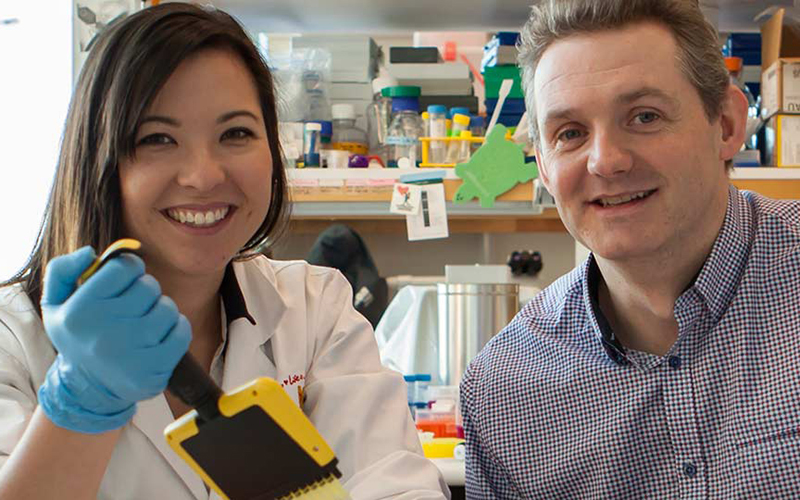Search
Research
Germline Elongator mutations in Sonic Hedgehog medulloblastomaGenetic predisposition to proteome instability may be a determinant in the pathogenesis of paediatric brain cancers
Research
Pediatric Brain Tumors: Innovative Genomic Information Is Transforming the Diagnostic and Clinical Landscape.This article summarizes data from collaborative group and institutional trials that have advanced the science of pediatric brain tumors.

People
Professor Nick GottardoHead of Paediatric and Adolescent Oncology and Haematology, Perth Children’s Hospital; Co-head, Brain Tumour Research Program, The Kids Research Institute Australia
Research
Patient-Derived Orthotopic Xenograft Models for High-Grade Pediatric Brain CancersPatient-derived orthotopic xenograft (PDOX) mouse models are considered the gold standard for evidence-based preclinical research in pediatric neuro-oncology. This protocol describes the generation of PDOX models by intracranial implantation of human pediatric brain cancer cells into immune-deficient mice, and their continued propagation to establish cohorts of animals for preclinical research.
Research
IDH-mutant gliomas in children and adolescents - from biology to clinical trialsGliomas account for nearly 30% of all primary central nervous system (CNS) tumors in children and adolescents and young adults (AYA), contributing to significant morbidity and mortality. The updated molecular classification of gliomas defines molecularly diverse subtypes with a spectrum of tumors associated with age-distinct incidence.
Research
Towards precision cancer medicine for Aboriginal and Torres Strait Islander cancer health equityDelivering cancer control at scale for Aboriginal and Torres Strait Islander communities is a national priority that requires Aboriginal and Torres Strait Islander leadership and codesign, as well as significant involvement of the Aboriginal community-controlled health sector. The unique genomic variation observed among Aboriginal and Torres Strait Islander peoples may have implications for standard and precision medicine.

News & Events
Landmark research hopes to increase survival rates for aggressive childhood cancerA new combination of drugs could help to increase survival rates with fewer side effects for some children with one of the most aggressive forms of childhood brain cancer.
Research
Developing and characterising juvenile models of aggressive paediatric brain cancers for the evaluation of novel immunotherapies.While profound treatment responses have been realised using immunotherapy for some cancer types, this is yet to be seen for paediatric brain cancer patients.
Research
Integrated analysis of miRNA and mRNA expression in childhood MedulloblastomaMedulloblastoma (MB) is the most common malignant brain tumor in children and a leading cause of cancer-related mortality and morbidity.
Research
Integrated Analysis of miRNA and mRNA Expression in Childhood Medulloblastoma Compared with Neural Stem CellsMedulloblastoma (MB) is the most common malignant brain tumor in children and a leading cause of cancer-related mortality and morbidity.
